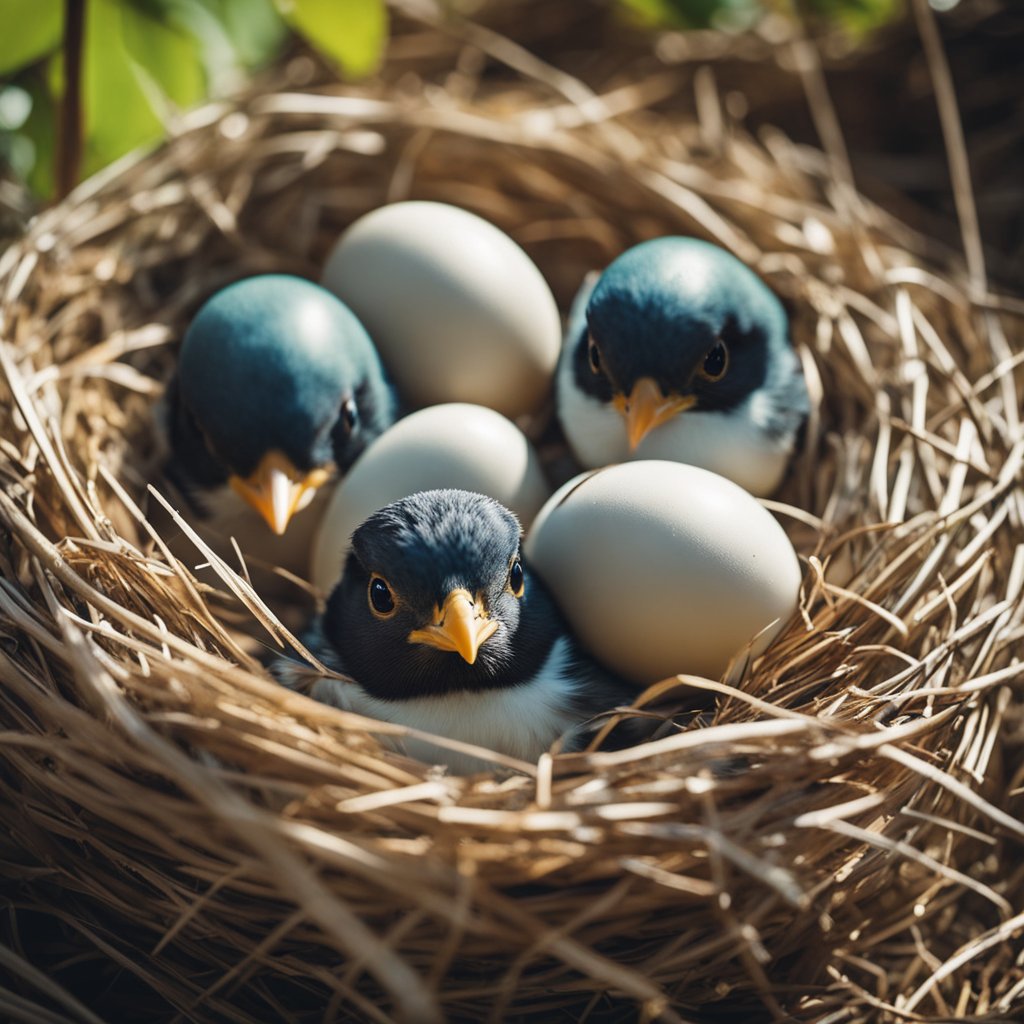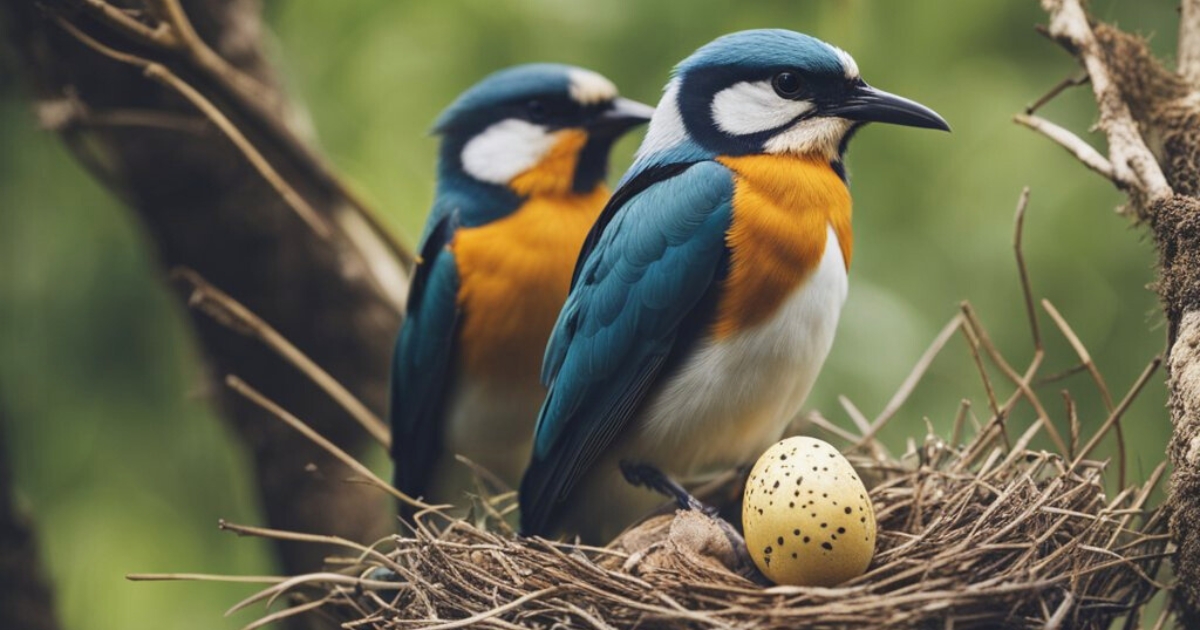Have you ever wondered how long those feathered friends in your backyard or local park sit patiently on their eggs before their little ones hatch? The process of avian incubation is a fascinating and crucial aspect of the bird life cycle, and the duration can vary greatly among different species. In this comprehensive guide, we’ll delve into the intriguing world of bird incubation, exploring the factors that influence how long birds sit on their eggs and the amazing adaptations they’ve developed to ensure the successful hatching of their offspring.
The Miracle of Avian Incubation
The Importance of Incubation
Incubation is a vital stage in the reproductive cycle of birds, as it facilitates the development of the embryo within the egg. During this period, the parent bird (or sometimes both parents) provides warmth and protection to the eggs, ensuring the proper growth and maturation of the developing chick.
The incubation process is nothing short of a miracle, as the parent birds diligently sit on their eggs, carefully regulating the temperature and humidity to create the ideal conditions for the embryo to thrive. Without proper incubation, the embryo would fail to develop, making this phase a critical determinant of the success of the next generation.
Factors Influencing Incubation Periods
The length of the incubation period can vary significantly among different bird species, and several factors contribute to these variations. Species-specific adaptations play a crucial role, as each bird has evolved to suit its unique ecological niche and reproductive strategies.
Environmental conditions, such as temperature and humidity, can also influence the duration of incubation. For example, birds nesting in colder climates may require longer incubation periods to compensate for the cooler temperatures.
Additionally, the size of the egg and the number of eggs in a clutch (the complete set of eggs laid in one breeding season) can impact the incubation period. Larger eggs or larger clutches may require longer incubation times to ensure proper development.
Variations Across Different Bird Species
Songbirds
Songbirds, known for their melodious vocalizations, typically have relatively short incubation periods compared to larger bird species. Common incubation periods for songbirds range from 10 to 16 days, with some variations among different species.
For example, the American Robin, a beloved backyard bird, has an incubation period of approximately 12-14 days, while the Northern Cardinal, with its vibrant red plumage, incubates its eggs for around 12-13 days.
Waterfowl
Waterfowl, such as ducks and geese, have evolved adaptations to suit their aquatic environments, including variations in their incubation periods. Many waterfowl species have longer incubation periods compared to songbirds, ranging from 24 to 30 days.
The Mallard duck, a common sight in urban parks and ponds, has an incubation period of around 28 days, while the majestic Canada Goose typically incubates its eggs for approximately 25-28 days.
Raptors and Birds of Prey
Raptors, including hawks, eagles, and owls, are known for their impressive hunting skills and fierce protective nature. These birds of prey often have longer incubation periods compared to smaller bird species, reflecting the larger size of their eggs and the time required for the development of their formidable offspring.
For instance, the iconic Bald Eagle has an incubation period of approximately 35 days, while the Red-tailed Hawk, a common sight in open fields and woodlands, incubates its eggs for around 28-35 days. In many raptor species, both the male and female share the responsibility of incubating the eggs, taking turns to ensure the eggs are consistently kept warm and protected.
The Incubation Process
Nest Preparation
Before the incubation process can begin, birds meticulously prepare their nests, selecting suitable locations and constructing them with carefully chosen materials. The nest serves as a safe haven for the eggs and the subsequent chicks, protecting them from predators, harsh weather conditions, and other environmental threats.
Different bird species have their own unique nest-building techniques and preferences, ranging from simple cup-shaped nests made of twigs and grass to more elaborate structures constructed with mud, moss, and even found objects like strings or pieces of plastic.
Egg Laying and Clutch Size

Once the nest is prepared, the female bird begins laying her eggs, typically one per day until the clutch is complete. The clutch size can vary widely among different species, depending on factors such as the bird’s size, available resources, and breeding strategies.
Some birds practice asynchronous hatching, where the eggs in a clutch are incubated at slightly different times, resulting in chicks hatching over a period of days rather than all at once. This strategy can provide advantages in terms of resource allocation and ensuring the survival of at least some offspring in the face of environmental challenges.
Incubation Behavior
During the incubation period, parent birds exhibit a range of behaviors to ensure the eggs are properly cared for. In many species, the female takes on the primary responsibility of incubating the eggs, while the male may contribute by bringing food or taking occasional shifts on the nest.
Birds carefully turn and rearrange the eggs, ensuring even distribution of warmth and preventing the embryos from adhering to the shell. They also maintain the nest, removing any debris or undesirable materials that could potentially harm the developing chicks.
Factors Affecting Incubation Periods
Environmental Conditions
Environmental conditions play a significant role in determining the length of incubation periods for birds. Temperature and humidity levels can influence the rate of embryonic development, with cooler temperatures generally requiring longer incubation times.
Additionally, the risk of predation can impact incubation periods. Birds nesting in areas with higher predator densities may exhibit shorter incubation periods to minimize the exposure of their eggs and increase the chances of successful hatching.
Parental Experience
A bird’s experience in breeding and incubating eggs can also affect the incubation period. First-time breeders may struggle with maintaining consistent incubation temperatures or properly turning the eggs, resulting in longer or more variable incubation times.
Experienced parents, on the other hand, have honed their incubation skills over multiple breeding seasons, often leading to more efficient and consistent incubation periods.
Human Disturbance
Human activities and disturbances can have a profound impact on the incubation process for many bird species. Excessive noise, habitat destruction, or frequent intrusions near nesting sites can cause parent birds to temporarily abandon their nests, disrupting the incubation cycle and potentially leading to longer or failed incubation attempts.
It is crucial for bird enthusiasts, researchers, and the general public to minimize disturbances to nesting birds and follow responsible bird watching practices to ensure the successful incubation and hatching of their offspring.
Monitoring and Observing Incubation
Ethical Bird Watching
While observing the fascinating process of bird incubation can be an enriching experience, it is essential to practice ethical and responsible bird watching. This involves maintaining a respectful distance from nesting sites, avoiding any actions that could disturb or stress the parent birds, and minimizing noise and sudden movements in the vicinity.
By adhering to responsible bird watching practices, we can enjoy the wonders of nature while ensuring the safety and well-being of the birds and their offspring.
Citizen Science and Data Collection
For those interested in contributing to scientific research and understanding bird behavior, there are numerous opportunities to participate in citizen science initiatives. Many online platforms and mobile apps allow bird enthusiasts to record and submit data on nesting activities, incubation periods, and other relevant observations.
By participating in these citizen science projects, individuals can play a valuable role in expanding our knowledge of bird incubation patterns, distribution, and population dynamics, ultimately contributing to the conservation and protection of these remarkable creatures.
People Also Read:
Conclusion
The incubation period for birds is a captivating and critical aspect of their life cycle, with each species exhibiting unique adaptations and behaviors to ensure the successful hatching of their offspring. From the diligent incubation efforts of songbirds to the impressive parental teamwork of raptors, the avian world offers a remarkable diversity in incubation strategies.
As we delve deeper into understanding the intricacies of bird incubation, we are reminded of the wonders of nature and the intricate web of life that surrounds us. By practicing responsible bird watching, contributing to citizen science initiatives, and promoting conservation efforts, we can not only satisfy our curiosity but also play an active role in preserving these feathered marvels for generations to come.
So, the next time you catch a glimpse of a bird diligently sitting on its nest, take a moment to appreciate the remarkable journey of life unfolding beneath those feathered wings and the incredible resilience and adaptations that have evolved over millennia.
FAQs
How do birds keep their eggs warm during incubation?
Birds have a specialized brood patch, a featherless area on their abdomen, which allows for effective heat transfer from their body to the eggs during incubation. Additionally, many birds rotate and rearrange the eggs regularly to ensure even warmth distribution.
Can a bird abandon its nest during incubation?
Yes, birds can potentially abandon their nests during incubation if they perceive a threat or disturbance in the area. Excessive noise, human intrusion, or the presence of predators can cause parent birds to temporarily or permanently leave their nests, jeopardizing the successful hatching of their eggs.
How do birds know when to start incubating their eggs?
Birds have evolved various cues to determine when to begin incubating their eggs. In some species, the female starts incubating as soon as the first egg is laid, while in others, she waits until the entire clutch is complete. Environmental factors, such as temperature and daylight hours, can also trigger the onset of incubation.
Can incubation periods vary within the same species?
Yes, incubation periods can vary slightly within the same bird species due to factors such as environmental conditions, parental experience, and individual variations. However, these variations are typically minor and fall within a normal range for that particular species.
What happens if a bird accidentally cracks or breaks an egg during incubation?
If a bird accidentally cracks or breaks an egg during incubation, it may attempt to repair the damage by covering the crack with nest materials or removing the damaged egg from the nest. In some cases, the bird may continue incubating the remaining viable eggs in the clutch.

